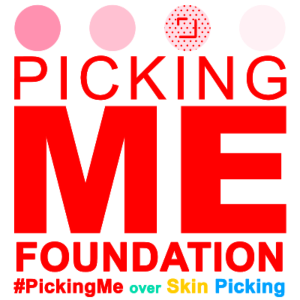
It’s unfair to Dermatillomania sufferers that nine out of ten dermatologists aren’t familiar with their disorder.
“Imagine going to see any specialist for any health concern or issue you are having and walking in and meeting them and you have to be prepared that nine out of ten times they are not going to know what you are struggling with,” Picking Me Foundation CEO and Founder Lauren McKeaney laments.
The comment paints a bleak picture of the state of Dermatillomania awareness.
It’s difficult to decide which is more mind blowing: the advancements in the medical field in 2018 or the fact that despite how advanced we are in the medical field most medical professionals still know little or nothing about Dermatillomania.
For a community of people seeking validation, the widespread ignorance in the medical community about the disorder isn’t helping to catalyze that process along. It also makes the process of selecting a Dermatologist exceedingly difficult for sufferers.
Unfortunately, the sheer sparseness of suitable dermatologists makes a trial-and-error approach necessary in many cases. Cold calling Dermatologists and questioning them on what they know about Dermatillomania or utilizing the same strategy but in person can both be effective. The goal is to locate one of the 10 percent who gets it, or find a dermatologist who is at least open to learn about skin picking disorder.
Sometimes it requires going to a Dermatologist for a visit and then making a subjective judgement on their effectiveness and adjusting strategy from there. It’s important to understand that this trial-by-error strategy is a process that requires extra effort.
Another problem is there are few Dermatologists who consider both the physical and mental components of skin-picking treatment.
“It’s kind of in this weird gray zone in the middle between what a dermatologist and a psychiatrist can provide,” McKeaney said. “The Dermatologist is presented with someone with skin picking disorder. They approach [treatment] from the skin side not considering well maybe I should put them in contact with a psychiatrist that I have a relationship with. That’s the other component this person is going to need here.”
For Dermatillomania sufferers seeking help from dermatologists, it’s important to understand that there are different types of dermatologists. Avoid the cosmeticians and Aestheticians in favor of the Dermatopathologists (also as medical dermatologists).
“[Dermatopathologists are] more helpful at getting to the root of Dermatillomania and not just dealing with the aftermath of picking episodes [which cosmeticians and Aestheticians do].”
If a Dermatologist rushes to suggest surgery or other surface-level treatments for Dermatillomania, that’s a warning sign that they aren’t taking a holistic (physical and mental healing) approach.
Over at Picking Me Foundation, McKeaney and her team have identified several ways they can make Dermatologists more aware of Dermatillomania:
-Make Therapists and Psychiatrists so informed on Dermatillomania that they’ll directly be able to hook up sufferers with Dermatologists that they know can help.
-Project Dermatologist: An initiative to spread awareness on Dermatillomania to skin-care providers. We’ve sent out 750 Dermatillomania resource packages to skin-care providers around Chicagoland.
-Coming Soon: compiling a database or rolling list of dermatologists who have knowledge of Dermatillomania and its treatments.
For information on how Picking Me Foundation is making dermatologists better aware of dermatillomania, click here.
